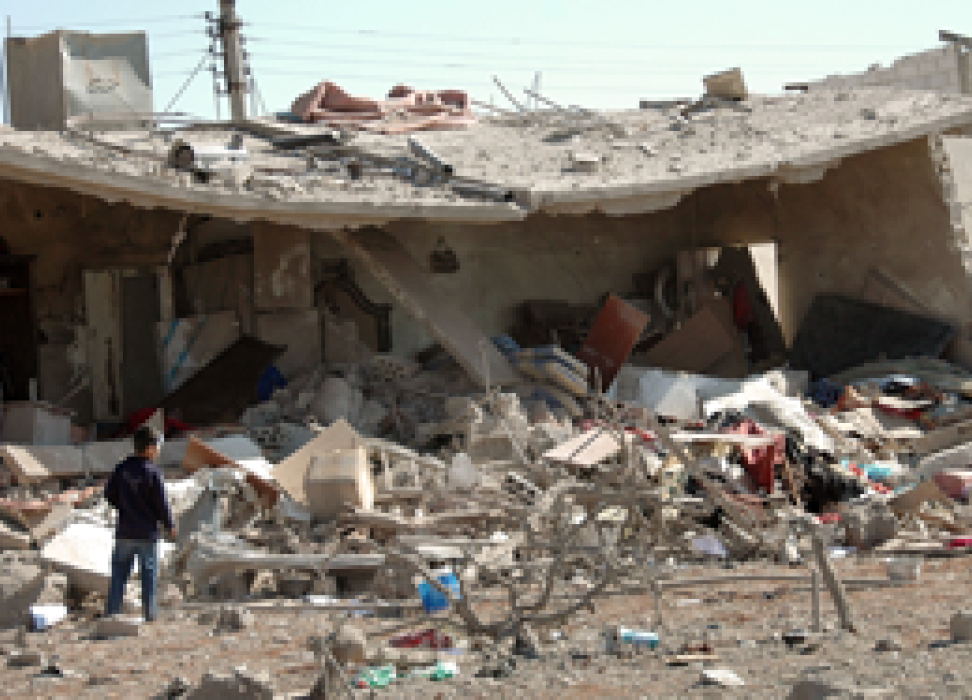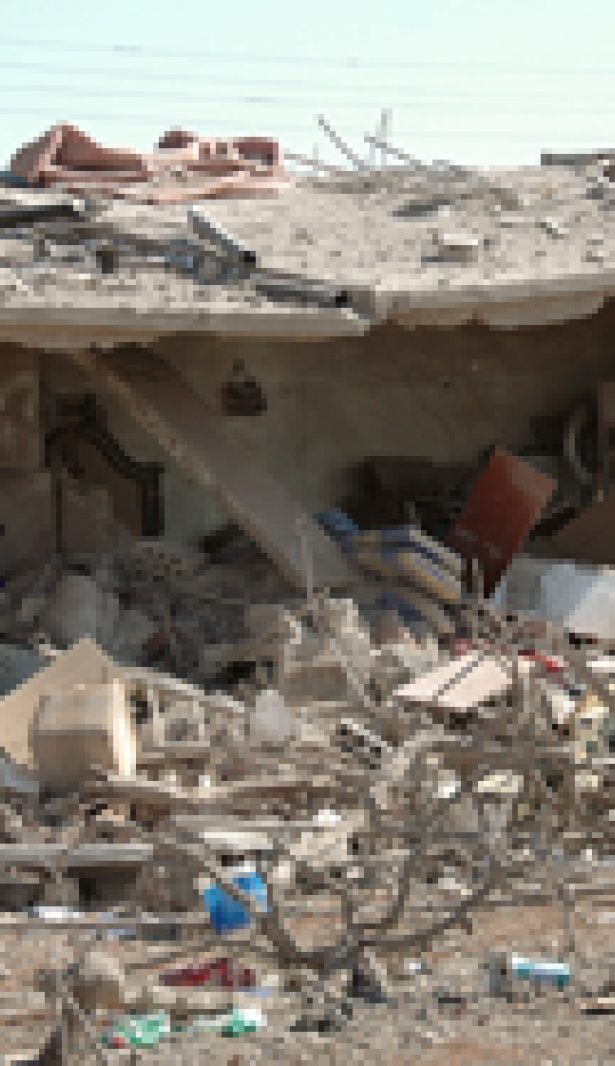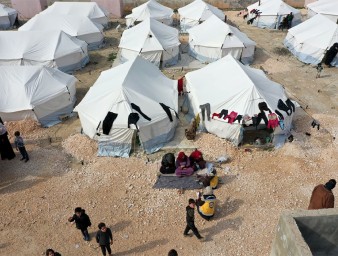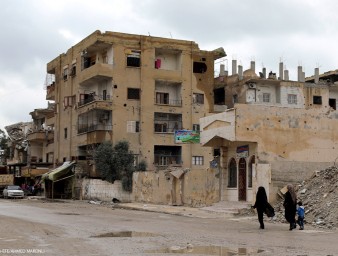Hundreds of thousands besieged in Syria
20 February 2014

An estimated 240,000 people are trapped in besieged Syrian localities of Rural Damascus, Damascus, Homs and Aleppo, according to information released by the UN Human Rights Office.
Syrian Government forces and pro-Government militias, as well as armed opposition groups, have imposed a system of barricades and checkpoints that has impeded the movement of people, goods and supplies.
The limited humanitarian aid that has been allowed into certain besieged areas, such as in al-Muadhamiya, Yarmouk camp and Homs, in the last few months remains precarious, subject to parties abiding by ceasefire agreements which are often broken.
Civilians have only been allowed to leave on few occasions when a temporary and limited agreement was reached between parties to the conflict.
A witness in the Old City of Homs told UN Human Rights Office that he had risked his life in order to procure medicine for his ailing mother.
“I had to cross several streets, including one in which people I knew had been killed by government sniper fire, to reach the field hospital to collect the medicine,” he said. “I had waited in vain for the shelling to get less intense, but I finally decided I had no choice but to venture out, praying that I would not lose my life.”
In Old Homs, shelling and aerial bombardment by Government forces intensified on a dozen neighbourhoods. As a result, residential buildings, roads, water tanks and power generators were destroyed, and hundreds, including entire families, were killed or injured.
Makeshift hospitals lack the necessary equipment and medical supplies to perform basic surgeries. Government-controlled checkpoints around the area blocked humanitarian relief and food supplies from reaching affected civilians whose lives were rendered increasingly unbearable.
A resident of the al-Muadhamiya district of the Ghouta area of Rural Damascus told the UN Human Rights Office, in December 2013, that the scarcity of food had forced religious clerics to issue edicts allowing people to eat cats and dogs in order to survive.
Yarmouk camp, another area under Government-imposed siege in the Damascus Governorate, was home to 160,000 refugees until December 2012, when the vast majority fled after armed opposition groups entered the camp. Around ten percent remained after the attack.
According to a former resident of the camp, dozens of deaths have been reported due to the consumption of rotten food, and because of the chronic shortage of medical supplies and expertise for sick and injured people and pregnant women trapped in the camp. The situation was compounded by the lack of electricity and severe shortage of water. Civilians were also being killed by ongoing fighting and sporadic aerial attacks.
Aid efforts by UN and non-governmental entities had been consistently thwarted since September 2013. UN Human Rights chief Navi Pillay strongly condemned the obstruction of aid. As of 20 January 2014, limited food aid and evacuations had been allowed to enter the Yarmouk camp.
Multiple armed opposition groups have been imposing tight ground sieges on the villages of Nubul and Zahra in the northern Aleppo Governorate since July 2012, preventing food, fuel and medical supplies from entering. Almost 45,000 people have not received humanitarian assistance since March 2013. While the Government had at times flown in supplies by helicopter, it stopped these operations when one of its helicopters was reportedly attacked by the opposition in June 2013.
Members of armed opposition groups in Nubul and Zahra stated that they would lift their sieges on the condition that Government forces do the same in eastern Ghouta and al-Muadhamiya. Pillay stressed that the obligation to respect international humanitarian law is not conditional on compliance by other parties to the conflict.
The UN Human Rights Office called on the Syrian Government and armed opposition groups in Syria to lift their sieges and allow the safe passage of civilians in and out of these areas in order to procure basic necessities and humanitarian assistance, or to flee the conflict zone.
The Government is also urged to immediately halt indiscriminate aerial bombardments which have been causing heavy loss of life and destroying local infrastructure vital to populations’ survival.
Further analysis on the impact of sieges on civilians in Syria is contained in a paper issued by the UN Human Rights Office, based on information collected by the Office between April 2013 and 20 January 2014.
Comments on the paper have been provided by the Permanent Mission of the Syrian Arab Republic in a note verbale dated 19 February 2014.
20 February 2014




